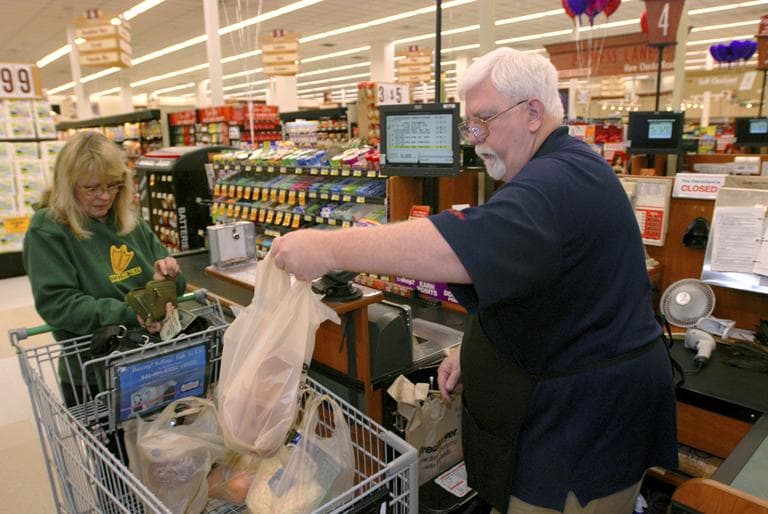Advertisement
Should Supermarket Plastic Bags Be Banned?
Resume
An increasing number of communities are banning the super-thin plastic bags commonly found in supermarkets. But what's the alternative? Critics say paper bags may have a higher environmental cost.
Brookline, Mass., Aspen, Colo. and Austin, Texas, are among the cities and towns that have bans on plastic bags. Portland, Oreg. and Baltimore are among the places considering such bans.
Bangladesh banned the bags in 2002 because they clogged storm drains and caused flooding. China did the same in 2008, eliminating 40 billion bags per year and saving the 11.7 million barrels of oil it would have taken to make them, according to Rolling Stone magazine. Italy has also banned plastic bags.
Ireland, which charges a fee for plastic bags, says it has slashed the use of the bags by 90 percent. But there's also evidence that people in Ireland are buying more - and thicker - plastic bags, for purposes once served by the free supermarket bags, for example lining garbage cans.
While China boasts its oil savings, critics of the bans on plastic bags argue that it takes more energy to create paper bags than plastic ones.
Meantime, plastic bag opponents counter that the energy use doesn't matter, since it's the afterlife of the plastic bag that is most harmful: blowing out of landfills and killing many thousands of marine animals that ingest them.
- Boston Globe: The plastic bag wars (Nov. 2012)
- The Wall Street Journal: Should Cities Ban Plastic Bags? (Oct. 2012)
- The Wall Street Journal: Paper or Plastic? A New Look at the Bag Scourge (June 2009)
Would you be on board with a ban on plastic bags? Let us know on our Facebook page or in the comments below.
Guests:
- Leon Neyfakh, reporter for The Boston Globe's Ideas section. He tweets @leoncrawl.
- Diana Twede, professor at Michigan State University's School of Packaging, and author of "Carton, Crates and Corrugated Board: Handbook of Paper and Wood Packaging Technology."
This segment aired on November 29, 2012.